Ways Speech Therapy Supports Elders During a Recovery Process
Speech therapy services provide critical support for elderly men and women during the recovery process. This specialized service is not only convenient but also highly effective in addressing the unique needs of older adults.
Here are three significant ways that professional speech therapy supports the elderly.
Enhancing Communication Skills
Effective communication is fundamental to maintaining relationships and overall mental health. Speech therapy focuses on improving articulation, language comprehension, and expression, which are often impaired due to conditions like stroke, dementia, or Parkinson’s disease.
Techniques and Exercises: Speech therapists use various exercises to help patients improve their speech. These might include articulation exercises, where patients practice saying specific sounds and words, and cognitive activities like memory games and problem-solving tasks. (Connected Speech Pathology) (MDC Healthcare)
Language comprehension can be improved through listening to stories and answering questions, while language expression is enhanced by describing pictures and engaging in conversations.
Real-life Examples: For instance, a patient recovering from a stroke might struggle with speaking clearly. Through consistent speech therapy sessions, they can regain their ability to articulate words properly, allowing them to communicate more effectively with family and friends.
Improving Swallowing and Nutritional Intake
Many elderly individuals face difficulties with swallowing, known as dysphagia, which can lead to serious health issues if not addressed. Speech therapy plays a crucial role in managing these problems to ensure safe and adequate nutrition.
Therapeutic Interventions: Speech therapists provide exercises to strengthen the muscles involved in swallowing. Techniques might include practicing swallowing different textures of food and liquids or using specific maneuvers to facilitate safer swallowing. (Bridge Home Health & Hospice) (MDC Healthcare)
Also, therapists often work closely with caregivers to modify diets and ensure the patient’s nutritional needs are met safely.
Case Studies: Consider a senior who has undergone head and neck surgery and now struggles with swallowing. Through tailored speech therapy exercises and dietary adjustments, this individual can improve their swallowing function, reducing the risk of choking and ensuring they receive proper nutrition.
Supporting Cognitive Function and Emotional Well-being
Speech therapy also significantly supports cognitive functions such as memory, attention, and problem-solving. Enhancing these cognitive skills helps maintain emotional well-being and reduces the risk of conditions like dementia.
Cognitive and Emotional Interventions: Speech therapists use cognitive exercises, such as memory tasks and puzzles, to stimulate the brain. They also teach strategies to help patients cope with communication challenges, which can alleviate anxiety and depression. (Connected Speech Pathology) (Amedisys Care)
Patient Testimonials: An elderly patient with early-stage dementia might benefit greatly from these interventions. Regular speech therapy sessions can help them retain their cognitive abilities longer, improving their quality of life and emotional health. Their caregivers also receive training on how to support these cognitive exercises at home, creating a more supportive environment for the patient.
Empowering Caregivers through Education and Support
Caregivers play a vital role in the recovery process, and their education and support are essential. Speech therapy includes training caregivers on how to assist with communication techniques and manage daily care tasks effectively.
Educational Resources and Strategies: Speech therapists provide caregivers with strategies and tools to support the patient’s communication and cognitive exercises. This might include using visual aids, alternative communication devices, or specific routines that help the patient practice their skills daily. (Connected Speech Pathology) (MDC Healthcare)
Impact on Caregivers and Patients: Educated caregivers can better support their loved ones, leading to more effective therapy outcomes. For example, a caregiver trained to use a picture book for communication can significantly enhance the interaction with a patient suffering from aphasia, ensuring they feel understood and supported.
Promoting Independence and Quality of Life
Speech therapy aims to foster independence in daily activities and enhance the overall quality of life for elderly patients. By receiving therapy in their familiar home environment, patients are more comfortable and motivated to engage in their recovery process.
Therapeutic Approaches: Techniques such as practicing daily living skills in the home setting can boost confidence and promote independence. Therapists also develop personalized care plans that address the specific needs of each patient, ensuring a holistic approach to their recovery. (Carolina Therapeutics) (Amedisys Care)
Examples and Testimonials: Patients who receive speech therapy at home often report feeling more independent and capable of handling daily tasks. For instance, an elderly individual recovering from a stroke might regain the ability to manage their medications or communicate their needs clearly, significantly improving their day-to-day life.

Speech Therapy Greenville SC – Ways Speech Therapy Supports Elders During a Recovery Process
Speech therapy offers elderly individuals a convenient and effective way to enhance their communication skills, improve swallowing and nutritional intake, support cognitive function and emotional well-being, and promote independence.
By tailoring therapy to the unique needs of each patient and providing support to caregivers, professional speech therapy plays a vital role in the recovery process. If you have an elderly loved one in need of speech therapy, considering professional care can make a significant difference in their recovery and quality of life.




